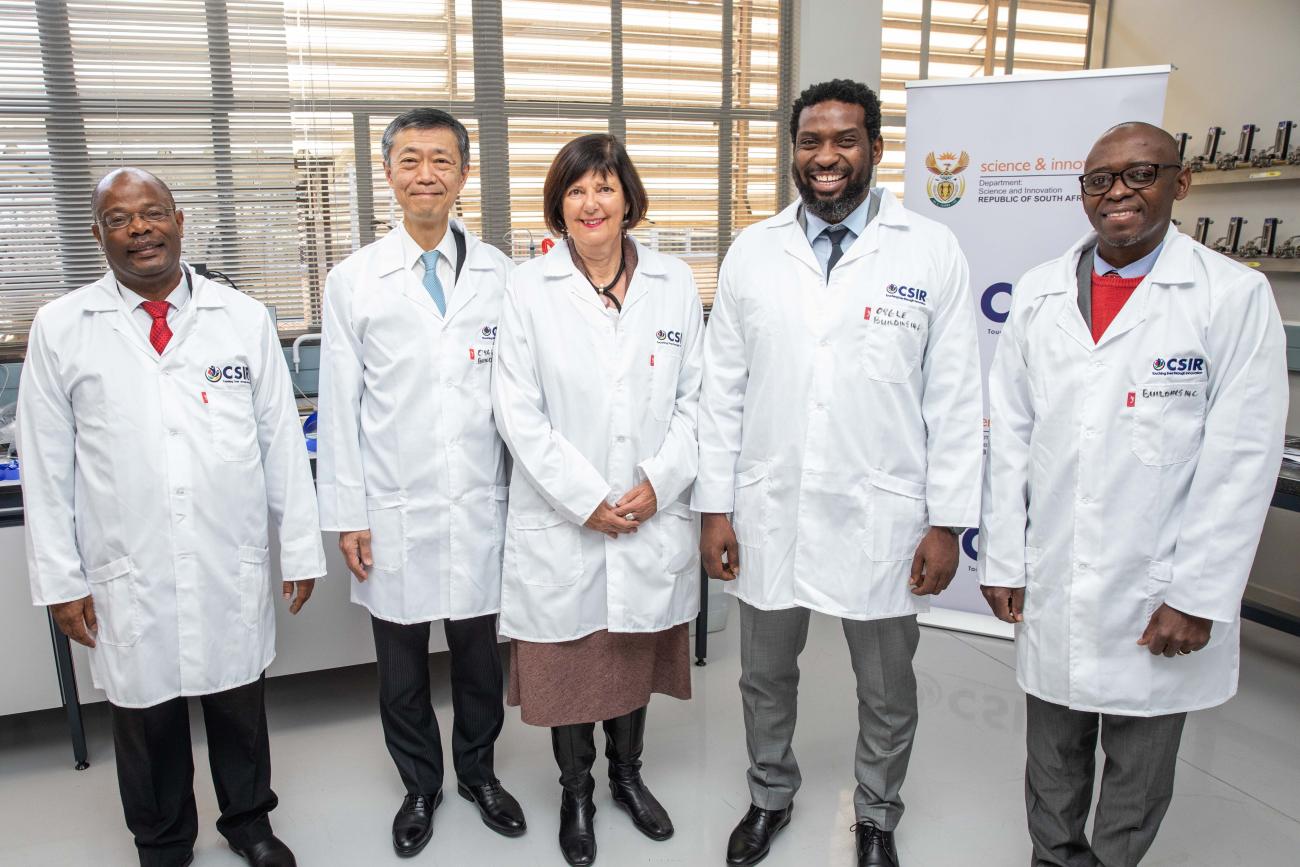Within the framework of its project “Support for transitioning from conventional plastics to more environmentally sustainable alternatives”, which is funded by the Government of Japan, the United Nations Industrial Development Organization (UNIDO) officially handed-over biodegradation assessment laboratory equipment to the Council for Scientific and Industrial Research (CSIR) in Pretoria, making it Africa’s first ISO- accredited biodegradation testing facility.
“At present, bioplastics represent less than 1% of plastics produced annually in South Africa”, said Minister of Forestry, Fisheries and the Environment Barbara Creey. “I would like to emphasize that, with growing consumer demand and more sophisticated applications, the percentage of bioplastics in South Africa’s total plastics production is expected to rise”.
The laboratory equipment is one of the components of a three-year project funded by the Government of Japan that explores the potential for transitioning from conventional plastics to sustainable alternatives, including opportunities for local manufacturing and economic development; the new equipment includes an automated respirometer, an automated titration system, and a carbon, hydrogen and sulphur analyzer.
“I hope that, in the near future, when alternative materials for plastic are commonly used, people gathered at today’s event will remember that this project paved the way for an eco-friendly lifestyle and will recognize how the cooperation between Japan, South Africa and UNIDO is positively changing lives towards a greener future”, said Japan’s Ambassador to South Africa Norio Maruyama.
Bioplastics have gained much attention as an alternative approach to shifting from petroleum-derived products that cannot be recycled and more towards “greener” and environmentally friendly alternatives that provide various end-of-life alternatives, such as biodegradability and recyclability in South Africa.
“Today is indeed a celebration between South Africa, the Government of Japan, and UNIDO, and the outcomes of this project will make a significant contribution in terms of advancing South Africa’s intentions around biodegradability”, said Dr. Thulani Dlamini, CEO of the CSIR.
Through the CSIR biodegradation testing facility, South Africa will be able to verify biodegradability claims on imported and locally produced materials that are promoted as biodegradable in various markets and establish the conditions and timeframes of the biodegradation of materials by carrying out lifecycle sustainability assessments which will evaluate the environmental impact of using different materials.
“The goal is to eliminate waste and to create a regenerative economy in terms of environmental impact”, said Deputy Minister of Higher Education, Science and Innovation Buti Manamela. “And we also want to develop an economy that supports growth and development objectives, especially in the fight against poverty”.
“This project contributes to the realization of the Osaka Blue Ocean Vision”, said UNIDO Deputy Representative Levy Maduse. “It also contributes to South Africa’s key government priorities related to job creation as well as to the promotion of inclusive and sustainable developmental growth”.










